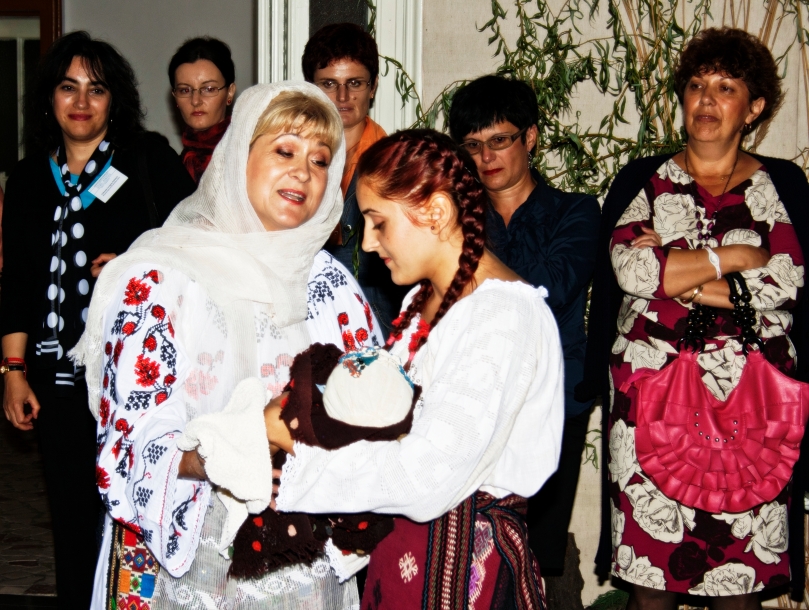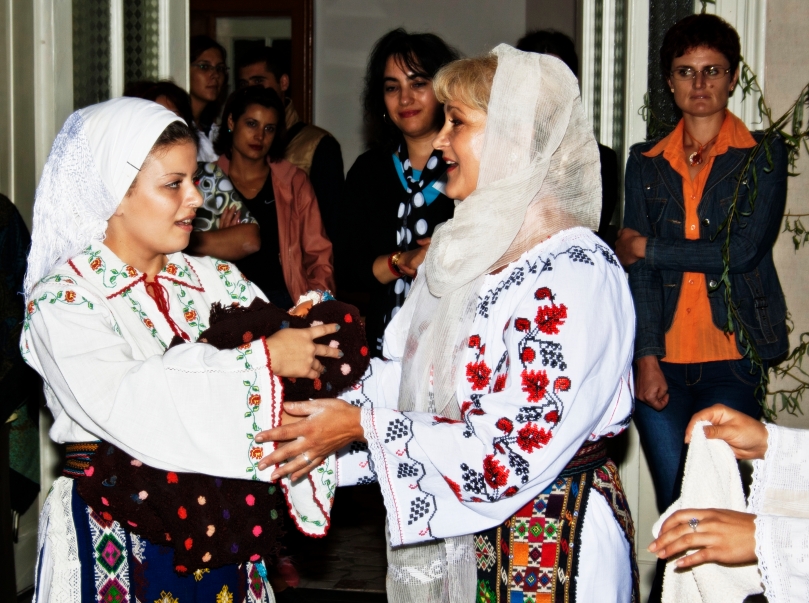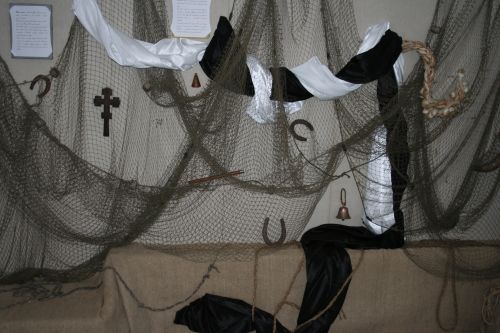Witches, the performers of
black magic, are persons who have the stigma of evil that they invoke in their
practices.
Therefore witches have physical defects (humpbacked, cripple, blind,
disfigured) or have jobs that come into contact with elements that obviate the
normal (grave digger).
Instruments used by witches consist in: knife, sickle, ax, scythe,
plow, horseshoe, skewer left, sieve, arrow made by 9 iron needles stolen from 9
houses, dust from an ancient and new tomb, a hanging rope, the little finger of
the dead, rabbit feet, weasel skins,
skulls.
Favorite
places for witchcraft are cemeteries, carrefours located in the woods, swamps,
abandoned churches, the places haunted by demons and undead.
 |
| Witch -
White Magic vs. Black Magic (2009 - Ethnographic and Folk Art Museum of Tulcea) |
 |
Witch - White Magic vs. Black Magic (2009 - Museum of Romanian Literature, Iași)
|
Charmers use in their practices pure objects (holy
water, fragrant and medicine plants) or sacred (incense, icon, cross, Easter
candles), invoking the power of God and the Virgin Mary. They utilize prayers
and apocryphal texts (Dream of Virgin
Mary, Virgin’ s trip to Hell, Epistle our Lord Jesus Christ).
Generally, charmers restore the equilibrium broken by "the work" of witches.
The
specific places are sacred (the church - objects should be blessed for 9 times or
in 9 churches to have full power) or clean (home, clearing/glade).
 |
| Charmer - White Magic vs. Black Magic (2009 -
Ethnographic and Folk Art Museum of Tulcea ) |
 |
| Charmer - White Magic vs. Black Magic (2009 - Museum of Romanian Literature, Iași) |
Divination represents the magical
practices to guess and predict the future. In a variety of forms, divination is
prevalent in all traditional cultures of the world.
Some forms of divination are:
• Chirognomy - guessing by the hand form
• Palmistry - palm reading of lines
• Shell scrying
• Pessomancy - using 41 beans
This is an incantation (in Romanian) used in pessomancy:
Patruzeci şi unul de bobi număraţi,/ Patruzeci şi unul de fraţi,/ Să alergaţi,/ Sa căutaţi,/ Pe unde ştiţi/ Şi să-mi ghiciţi,/ Aşa cum a ştiut plugarul să vă semene/ Şi voi aţi ştiut să încolţiţi,/ Să creşteţi şi să vă-nmulţiţi,/ Aşa să-mi arătaţi/ Voi patruzeci şi unul de bobi descântaţi,/ Totul drept şi adevărat/ Cum Dumnezeu v-a binecuvântat,/ De drum, de gând, de bucurie,/ De vesti bune ce-o sa fie,/ De bine să iasă, bobi sositori şi bucurie-n prag,/ Iar de nu, să vă risipiţi câte unul şi doi, să nu se aleagă nimic din voi.”/ În numele Tatălui, al Fiului, al Sfântului Duh, Amin!











































